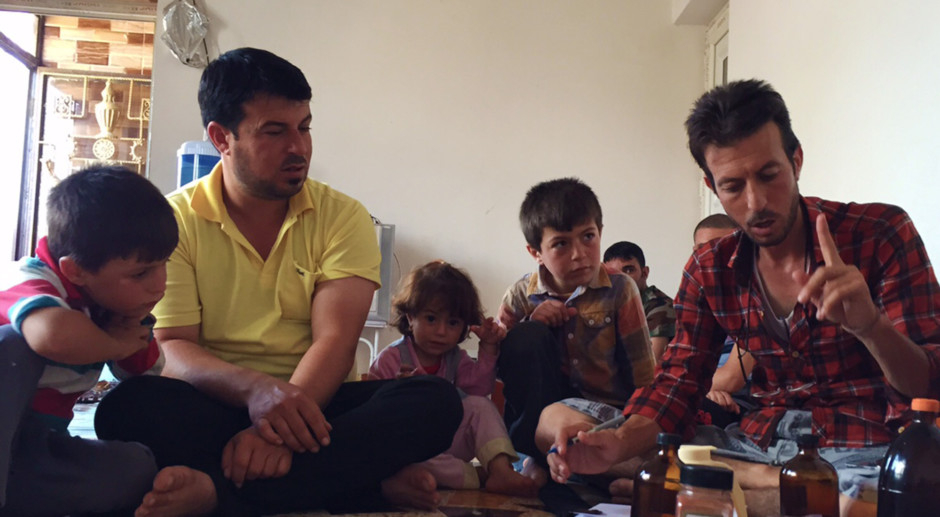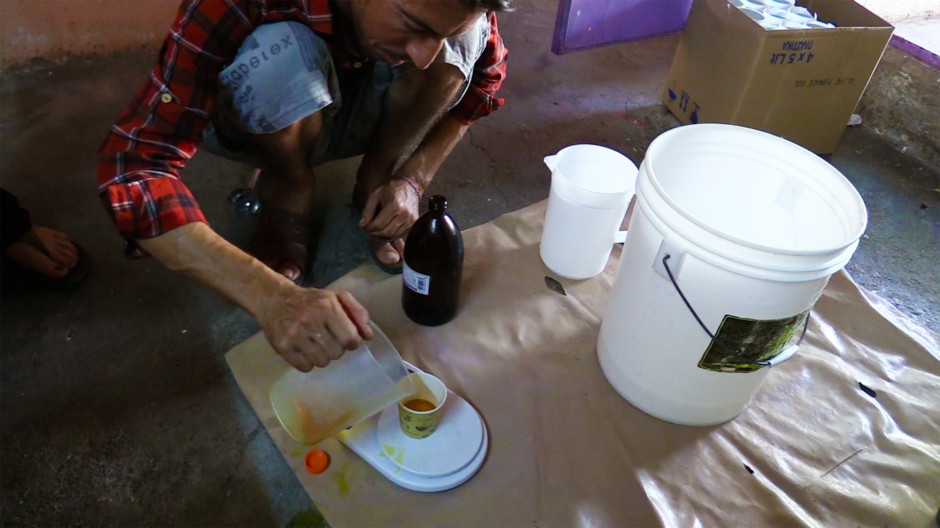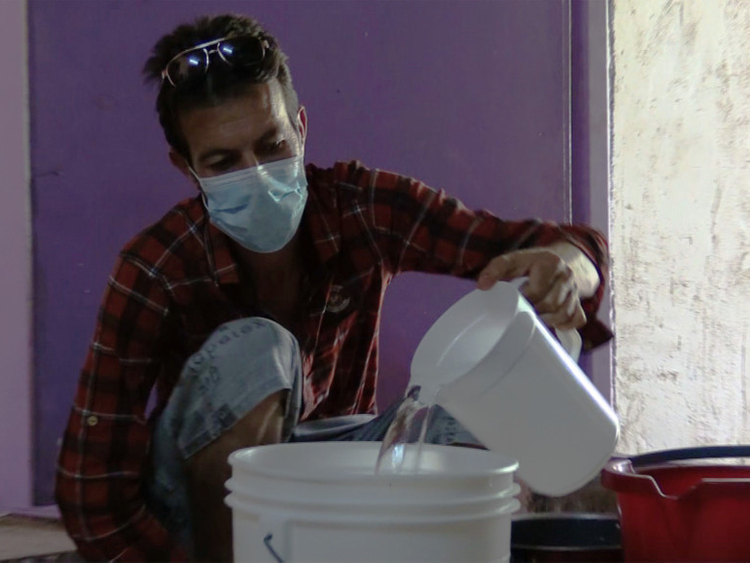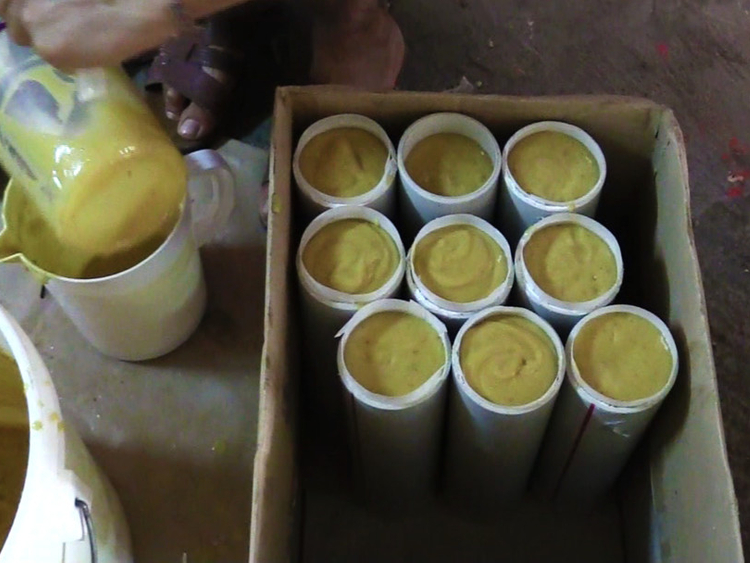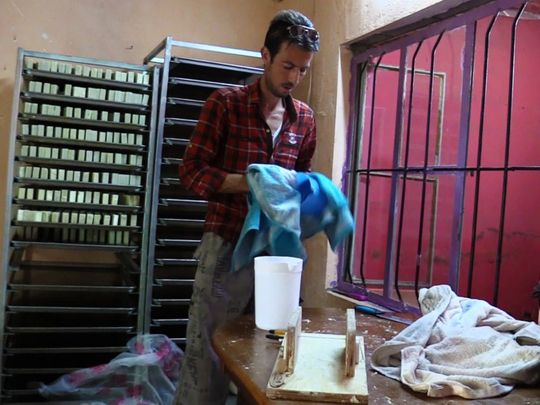
Sulaimaniyah, Iraq: The United Nations has called the actions of Daesh against the Yazidis ‘a genocide’ and ‘a war crime’.
In August 2014, Daesh broke through Sinjar province and killed more than 2,000 men, kidnapped the women and have been known to hold them captive, rape them and keep them as slaves.
But Firas Eisa and his family escaped the day they heard Daesh had broken through the defences of their town. They fled their home in Shingal and made it to a small camp outside of Sinjar. Eisa told Yahoo News they would then move further to Sulaimaniyah in North-Eastern Iraq, “When we came from Shingal, we came to an unfinished hotel, it belonged to a Kurdish guy, we used that hotel for one year. We were 18 families sharing the hotel.”
The hotel he and his family lived in was made of stone, there were no beds and one of the walls of the hotel was missing. It had been under construction, but for Eisa, it was a safe place. After living there for a year, the owner asked them to leave, they found a camp, with a small house. His two brothers and their families all moved in, but paying rent was difficult.
In November, last year, a relief and developmental organisation, Preemptive Love Coalition (PLC) came to Eisa’s family and offered to help. Jessica Courtney, a programme officer for the organisation not only brought food for the family, but she also asked them about their work-skills. Courtney wanted to help them get back to a normal life, a life they could call their own.
When she presented the idea of having the women in the family make soap, they were very eager during her demonstration to try, “They really wanted to do it, so we bought them the supplies to make it,” Courtney told Gulf News, “but when it came time to actually make it, they were very nervous about the chemical process, so Faris [Eisa] stepped in, he made a really beautiful bar of soap and said can our families work on this job together?”
Eisa set up shop in a small space behind their home. He took ownership of mixing olive oil and chemicals to make bars of soap. Over time, he started to experiment with other ingredients, adding honey, rose petals, camomile and charcoal.
“PLC came to help us and teach us to make soap,” Eisa explained and then “she [Courtney] bought the soap from us to help support us, now our life is okay, we can survive”
Courtney explained PLC has been able to buy back the soap from Eisa and sell it to other non-governmental organisations in Iraq, including ‘wash-programmes’ that aim to help internally displaced people in camps around the country with their cleanliness.
Eisa also sells his soap to the communities around him who hear about his work. It costs only thirty-three cents to make each bar of soap, and he has been able to sell it for up to two dollars and seventy cents. Since November, Eisa’s family has been able to pay for their rent without problems, family medical needs and he and his brothers have been saving to buy a car so they can travel and expand their business.
The goal Courtney said was to build back the local economy, “He has been extremely industrious. He has made to date probably, 30,000 bars of soap. They’re putting their money back into the country of Iraq.”
But Eisa’s success doesn’t mean his challenges are over. As a Yazidi, he feels he is at a disadvantage to expand in the Kurdish region. Surrounded by a Muslim population, who, he says may not view his family favourably over religious differences; some refuse to buy his soap.
In addition, Eisa can’t go home. Despite Shingal’s exoneration from Daesh in December 2014, tensions in Sinjar province are still high between competing parties and Eisa is concerned, “People are so afraid. It’s so difficult to go back. We have to think about the future, what could happen, without international protection, it’s difficult to live in Shingal.”
Now that UN human rights investigators have released their report, they are recommending the UN Security Council take military and economic measures to stop the crimes committed.
Meanwhile, Eisa and his family steadily build their soap business and he recently connected with another NGO who is helping him work with bees and harvest his own honey.
Courtney is inspired by Eisa’s initiative and has seen many families depressed and without hope. When they’re valued and paid for the work they do, she explained, “any amount of money that gives them volition for their life, [it] brings a kind of blessing, a kind of hope — a kind of worth in somebody’s life.”
For Eisa, he’s keeping his eye on the future, “We want to have a solution for the whole community [of Yazidis] to get back together and live together [again].”
— Ash Gallagher is a freelance journalist based in the Middle East


